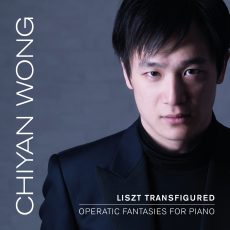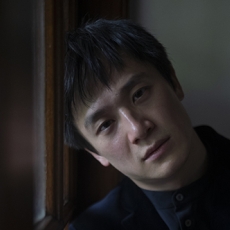Chiyan Wong - Liszt Transfigured - MusicWeb International
Here again is another young pianist whom I have never heard of, tackling some of Liszt’s more ferocious operatic paraphrases. However, these are not “by the book” recordings. Mr. Wong has edited the pieces, so that although the main body of the piece is by Liszt, as is much of the detail, little emendations throughout put the performer’s stamp on them. This is justified in the notes: many of Liszt’s pupils reworked pieces when they made recordings, so this is just continuing the tradition. Personally, I am quite happy with this idea, as there is not always the need to stick slavishly to the text. So, I pinned back my ears and listened!
We start with the Grande fantaisie sur des themes de l’opera Niobe de Pacini, the piece which Liszt played in his piano duel with Thalberg in the salon of Princess Cristina Belgiojoso on the 31st of March 1837. The beginning is a little timid compared to the other recordings I have heard but this does not continue. Within a short period of time, the pianist is blazing away with the best of them. I have always liked this work. Mr. Wong is alive to every nuance within the notation, and the changes are minimal. The only real change I can detect is the inclusion of a small chromatic run in the left hand towards the end (10:15) plus a small cadenza section following that. The coruscating passagework at 11:36 has to be heard to be believed. This is a remarkable recording of a rarely heard work.
The second track is, if anything, even rarer: Reminiscences de La juive—Fantaisie brillante sur des motifs de l’opera de Halevy. This is not one of Liszt’s most successful operatic paraphrases, in my opinion, but here it is superbly played. Some very apposite alterations improve the structure which Liszt wrote. The voicing is again absolutely right and, no matter how finger-twistingly tough the music is. Mr. Wong deals with it without sounding forced or awkward. There is a really complex little cadenza around 4:20 which is not like anything that Liszt would have written, but it helps to join into the slower middle part of the work. There is some beautiful phrasing from 5:30, with a lovely bouncy rhythm in the left hand. This leads into a slightly faster section where the ebb and flow of the music is splendidly controlled. Things do not stay quiet for long though. By 8:05, the pace is gradually increasing, as is the volume. This comes to an abrupt stop with a delicate but impassioned part around 10:15. This eventually leads into the final headlong rush which involves a lot of leaping around and some very complex finger work for the left hand. All of this is dispatched with aplomb. The closing minute or so when the difficulty is ramped up even more is amazing—I wish I could play like this!
Thirdly, we have the famous Reminiscences de “Don Juan” de Mozart, recorded of course by many different pianists across the years. Here the changes are those included in the Busoni version but further added to by Mr. Wong. To my ears, there are only a few minor changes at least until the end of the piece. A good example of how good Mr. Wong is can be heard in the Duo section (La ci darem la mano) at 4:40 onwards, where the two hands do really sound like two singers performing a duet. If anything, the following variations on this theme are even more incredible. Liszt alters the theme into something far more complex but, despite this, the duality of the two hands is still maintained. The second variation (marked Tempo giusto) with its slightly jazzy feel is certainly the best I have ever heard it played. This leads into a completely over-the-top cadenza with horribly demanding runs in thirds in the right hand. There are one or two little alterations to the tune here but they are perfectly in keeping and lead well into the final Presto (Fin ch' han dal vino, the Champagne aria). This is certainly played very quickly. The points where it stops to reiterate the growling chords from the beginning of the piece are very well judged. It is about here that the changes to the text are apparent, extra leaps and small repeats and changes in figuration are all made but the overall effect is amazing— this is super-virtuoso stuff and I really like it.
Lastly, there is another much rarer work (at least in this form). As I have stated elsewhere, Busoni radically altered Liszt’s manuscript of the so called Figaro Fantasy by removing large parts of it. That piece is quite often played. The inestimable Leslie Howard for his Hyperion recordings completed the work to include the expunged sections plus some small cadenzas. It seems that Mr. Wong has done the same sort thing, so we actually have the whole piece in a form which Liszt might have recognised. All the little extra bars which Dr. Howard recommends leaving out in his published edition (published by Editio Musica Budapest, catalogue Z.14135) are here as well. As a result, the work—instead of lasting about 15 minutes (Busoni edition)—runs for over 22 minutes, so there is a lot of material here which we do not often hear. As I have stated before, Mr. Wong plays fantastically well throughout this very long and demanding work. The alterations (aside from those found in Liszt’s un-mauled manuscript) are only small but significant and very well done. As an example of how testing this piece is, there is one particularly problematic section found at 10:43. It includes runs in 6ths, with an added 3rd for fun. This is remarkably played and the short quiet interlocking section just afterwards is splendidly judged. The added cadenzas are interesting and join the sections together very well—it was these which are missing from the original manuscript. The part where Busoni added his ending and removed the references to Don Juan leads very delicately (via a lovely cadenza) into a Tempo di minuetto section marked Dolce; here it is very sweetly played. Liszt gradually wound things up from this point and slowly reintroduced themes from Figaro leading to a triumphant and ridiculously hard passage; it is effectively a set of variations on non piu andrai, each one more difficult than the preceeding one. This last minute or so is nothing like what Liszt or Busoni would or could have written. It contains jazz-like elements and some very interesting harmonies and I think it works very well.
I have run out of superlatives here as this really is a stupendous recording. I have listened to this disc many, many times while writing this review. It is one of those few recordings which sounds as if it is spontaneously generating whenever it is played. Every idea is presented without preconceptions and flows naturally. Mr. Wong’s playing is phenomenal. There is some exquisite interplay between the hands. Even when the music is breathtakingly challenging, he manages to make it sound easy. I have no hesitation whatsoever in recommending this disc to fellow listeners, as it is incredible. I would really like to hear Mr Wong live in concert, so shall be keeping an eye on the schedules for such an event. The cover notes are a little sparse but with music making as good as this, it does not really matter to me. The recorded sound is wonderful, clear and bright and realistic. This is another disc to add to my pile of the best Liszt recordings of 2017.

